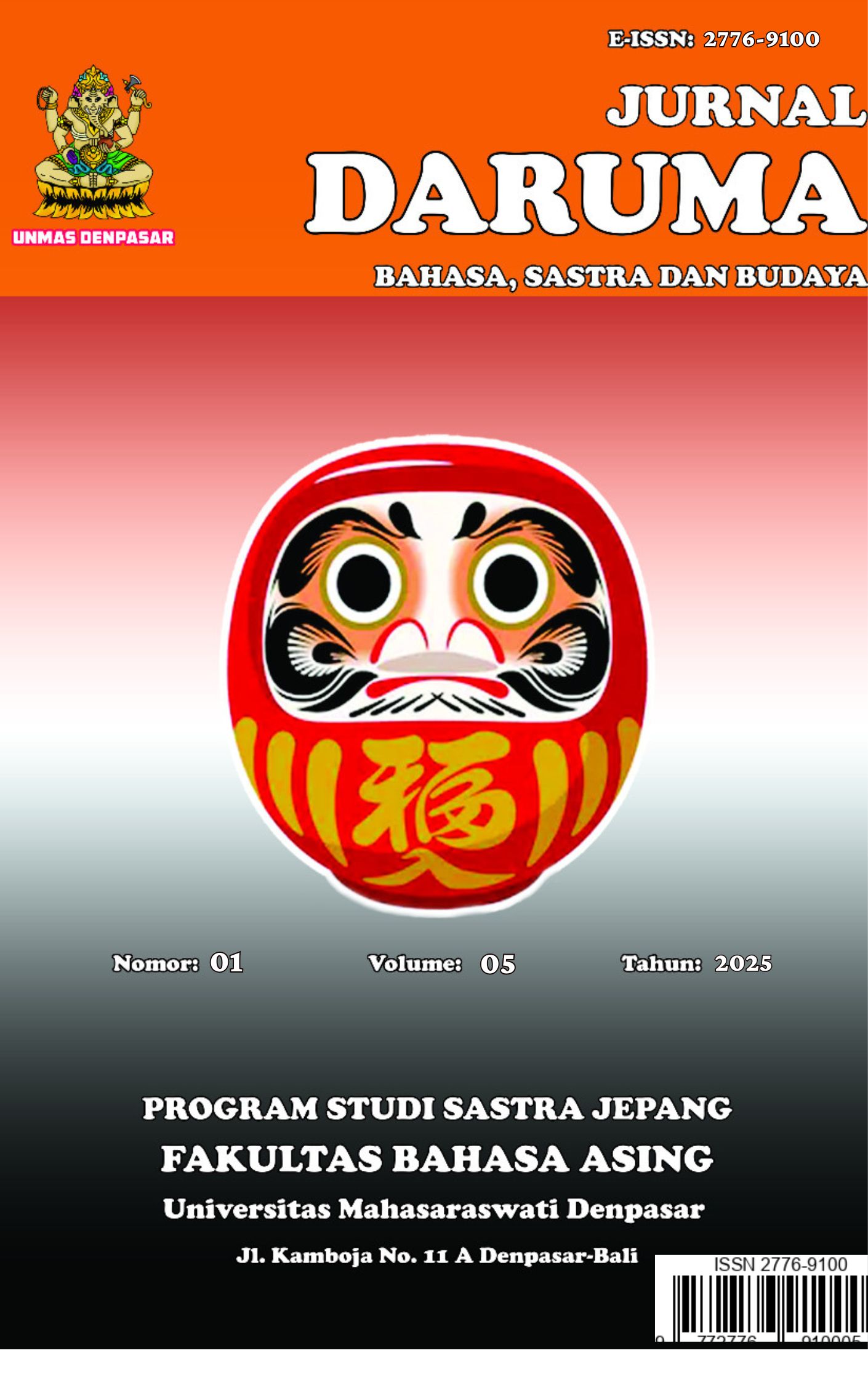DIMENSI SOSIAL DAN PERILAKU BERBAHASA MASYARAKAT JEPANG DALAM RANAH SOSIOLINGUISTIK
Abstract
ABSTRACT
The definition of language in the sociolinguistic field is influenced by three important elements, namely the social status of the language actors, the situation of the language and the form of the language that embodies (entities) oral or written structures. This last aspect is highlighted in this article, it includes morphological elements (inflection and morphemic processes of words); syntactic elements (sentence structure and hierakhi structure). The oral structure of the Japanese language emphasizes communication through the language in its entirety, involving all of the above points. So that each form of language changes according to the social dimension that crosses the space of speech. The change in discourse will eventually be recognized as a form of language that shows or reflects Japanese politeness. So, when we observe the form of the language in Japanese, it will be the same as observing the polite behavior of the Japanese people. The objective of this study is to examine the forms of language in the field of Japanese politeness and its relationship with the social dimensions of society.
Keywords: sociolinguistics, uchi-soto, kinship, social dimension
References
Brown,Penelope and Stphen C. Levinson. (1987). Politeness Some Universals in Language
Usage. New York: Cambridge University Press
Diana Kartika, UI Lib berkala, Vol.10 no. 1 A4 tahu 2024
Leech (1993), The Priciples of Pragmatics (Prinsip-prinsip Pragmatik , terjemahan), Jakarta:
Universitas Indonesia.
Leo Loveday, (1986), Japanese Sosiolinguistic. Amsterdam: John Benyamins Publishin
Company
Esther N.Goody, (1978), Questions and Politeness. New York: Cambridge University
Press.
Iritani Toshio, (showa 46 nen). Kotoba no Nigeng Kankei. Japan: Shobosha
Osamu Mizutani and Nobuko Mizutani, (1987). How to be Polite in Japanese. Japan:
The Japan Times.
Suzuki Shinobu, (1993), Nihogo Shoho. Japan: The Japan Foundation.
井上明美、(2003). 金田一先生に教わった敬語のこころ。東京:Gakken
https://wkwkjapan.com/tata-bahasa/ragam-bahasa-hormat-dan-sopan/





